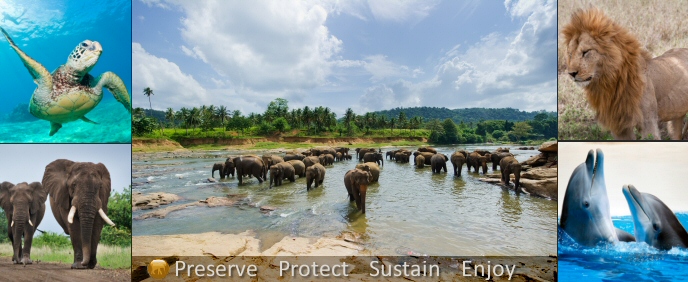
Eco Tours in the Pacific Northwest - Sustainable Tourism & Conservation Laws
The Pacific Northwest of the United States and Canada is known internationally as one of the most ecologically and topographically diverse regions on Earth. Everything from jagged mountains to rainforest and sweeping deserts can be found in this unique landscape. This diversity is a large part of why the Pacific Northwest is one of the top tourist draws in the world, and why a number of significant laws have been put in place to protect the wilderness found here. As such, ecotourists need to keep these laws and regulations in mind whenever they visit one of the many unique areas that the Pacific Northwest has to offer.
For tourists that visit the coast, it is important to note the large number of environmental laws in place to prohibit the harassment of marine mammals in both the US and Canada. In the United States, the Marine Mammal Protection Act is the main legal framework through which these regulations are enforced. Specifically, the laws set by the act expressly prohibit the "harassment" of marine mammals by tourists or industry. This is an important distinction to take into account, since there are a number of different interpretations for the word "harassment" when it comes to the natural world. For example, tourists attempting to get close to marine mammals such as pinnipeds while they are beached may find themselves being asked to stop by any nearby authorities. However, if the animals are in the water where they feel less vulnerable, there are no issues. Also, many tourists unfortunately engage in rock throwing and other activities to gain the attention of marine mammals to help get better pictures. While they may not personally interpret this as "harassment", the legal definition supports that this is indeed harassment, and those engaging in this activity will be fined heavily if they are discovered.
For tourists looking to go hiking or camping in the Pacific Northwest, there are a number of different regulations to follow. In the United States, these regulations are different than in other parts of the country-- even on Federal land-- so it's important to understand the differences. For example, fire prevention plays a much larger role in how people recreate on Federal forest land in the Pacific Northwest than it does in other parts of the United States. Since the high, dry forests can be under significant fire risk during the summer months, most national forests prohibit backpackers from building fires. Trails are monitored by rangers on horseback, and they enforce the fire bans with extreme prejudice. Also, camping may be entirely banned in some national forests depending on conditions. This is in stark contrast to many national forests on the east coast that don't enforce such stringent guidelines on hikers and campers.
These laws do not present any issues for the average tourist, and the Pacific Northwest offers an abundance of recreational opportunities to match any lifestyle. There are a number of wilderness areas throughout the area that are home to some rare endemic animals, as well as some of the oldest trees still alive on the North American continent. On the coasts, huge swaths of uninhabited islands dot the seascape, providing an unlimited bounty for exploration and marine activities. Some of the most productive recreational fisheries on Earth are found in the region, with a large number of outdoor enthusiasts traveling there every year solely for the fishing. The Pacific Northwest also is home to a number of arid and semi-arid areas including Hell's Canyon and the Oregon badlands. In fact, Oregon itself offers badlands and heavy forests in the east, while maintaining immense forests and coastal treasures to the west. This is just a small example of the innumerable recreational opportunities that can be found in the Pacific Northwest.
While most of the laws that impact tourism are much the same in this region as they are throughout the US and Canada, there are a few extra provisions to take into account with the diverse landscape. These laws are in place to protect the area from overuse and exploitation, so they will not be of any issue for the average tourist who is just looking to enjoy themselves in this rugged area of the world.

